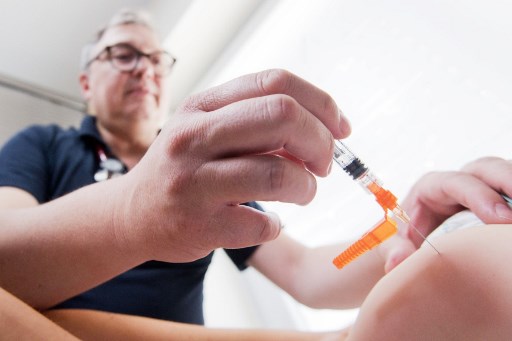Pere Godoy, the head Spain’s Epidemic Society said they are preparing to recommend vaccinations be extended beyond infants to include the adult generation most at risk of catching the disease.
Those born in the 1970s are considered most at risk because they were born after the highly infectious viral illness was prevalent so are unlikely to have contracted it, but before the introduction of the effective triple vaccine MMR was introduced.
A national campaign is planned to raise awareness of the risks of measles – not just to unimmunised children – and urge middle aged adults to check whether they have been innocualted and if not book a jab.
Although Spain has been on the list of countries were Measles is considered eradicated since 2016, there has been a recent surge in the number of cases detected.
In the first half of 2019, some 300 people were treated for measles just in Catalonia and Madrid, a figure blamed on thegrowing numbers of anti-vaxxers – those people who choose not to immunise their children because of “dangerous” myths about vaccines.

Photo: AFP
This year, in the first half of 2019, there have been a total of 233 cases of measles diagnosed – a slight rise on the six months before – but medical authorities confirmed these were 'imported' from outside Spain's borders or patients infected from those with imported measles, and that they were 'swiftly contained' to ensure nobody else caught it.
But this year, measles has officially returned to four European nations previously seen as free of the illness, according to the World Health Organization (WHO).
The disease is no longer considered eradicated in Albania, the Czech Republic, Greece and the UK.
“We are backsliding, we are on the wrong track,” said Kate O'Brien of the WHO's Immunization Department.
Countries are declared measles-free when there is no endemic transmission for 12 months in a specific geographic area.
Close to 365,000 cases have been reported worldwide this year, the WHO said, almost three times as many as in the first half of 2018.
Measles is a highly contagious and potentially fatal illness that causes coughing, rashes and fever.
It is not normally life-threatening in healthy children and young people, but complications can set in and it can cause serious birth defects or miscarriage in pregnant women, and be much more severe in late adulthood.
READ ALSO No vaccination, no nursery: Galicia plans ban against anti-vax movement



 Please whitelist us to continue reading.
Please whitelist us to continue reading.
Member comments